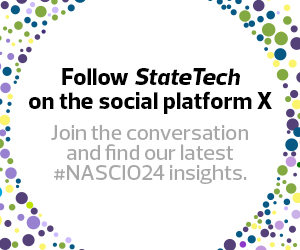CISOs Embrace Role in Digital Transformation and Generative AI
Deloitte and NASCIO made specific recommendations or “calls to action” for each of the five themes. Regarding state CISO authority, CISOs were particularly pleased with NASCIO’s call to “promote the CISO’s role in digital transformation.”
“Security has to be up front in the discussion,” Watson told the conference. CISOs must know a lot about various aspects of government operations, and as such they can be a valuable resource when planning strategic direction, he added.
New Hampshire CISO Ken Weeks said his state looks at its government IT strategy through a Venn diagram of cybersecurity, privacy and accessibility. “We make sure that everything we do lives in that intersection,” he said.
Regarding strategy development for generative artificial intelligence, Watson said CISOs were heavily involved.
“Security is one of the perfect use cases” for generative AI, he said at the conference, and CISOs have a high degree of confidence in handling generative AI tools deployed in their security environment.
Watson said that people were too quick to worry about generative AI threats. “The value proposition is ginormous, but we are all worried about what could happen,” he said.
Weeks said it was important to start the discussion: “He who writes the draft gets to control the conversation.” Working with New Hampshire Director of User Experience Kate Michener, Weeks drafted an AI code of ethics for the governor’s approval. Then, they wrote a policy for state AI use cases, which was fairly basic.
“Our adoption is going to be at the pace of its insertion and inherent presence in the tools that we all use. I’m not going to go out and buy some AI, “ he said.
Click the banner below to follow StateTech on X, formerly known as Twitter.













